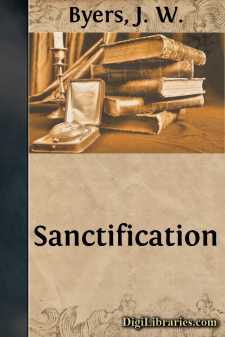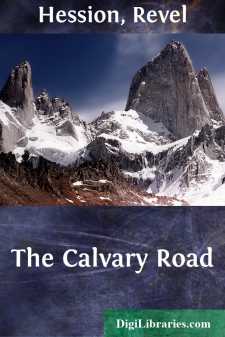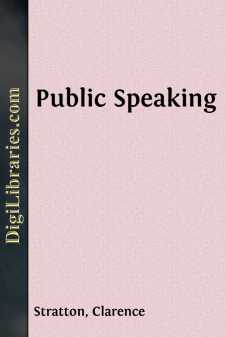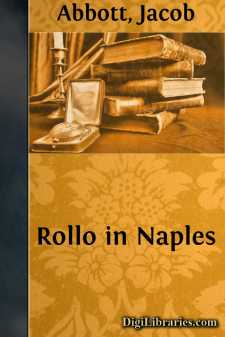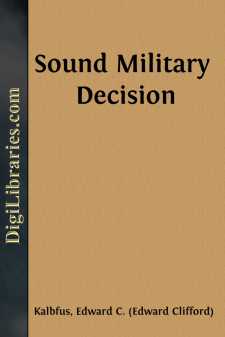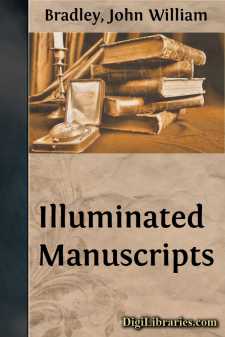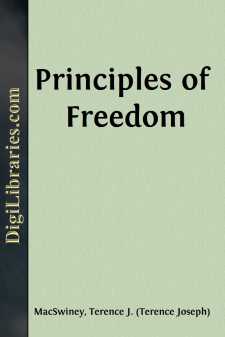Non-Classifiable
- Non-Classifiable 1768
Non-Classifiable Books
Sort by:
by:
J. W. Byers
What is Sanctification? Scripturally, the word sanctification has three meanings: First, separation; second, dedication; third, spirit-filling. Webster's definition of it is as follows: "1. Sanctification is the act of God's grace by which the affections of man are purified, or alienated from sin and the world, and exalted to a supreme love of God; also, the state of being thus purified...
more...
by:
Revel Hession
INTRODUCTION By NORMAN P. GRUBB,Hon. Secretary of the Worldwide Evangelization Crusade, London I am sure from my own experience, as well as from what we have seen in the ranks of our Mission these last three years, that what the authors tell us about in these pages is one of God's vital words to His worldwide church today. For long I had regarded revival only from the angle of some longed for, but...
more...
CHAPTER I SPEECH Importance of Speech. There never has been in the history of the world a time when the spoken word has been equaled in value and importance by any other means of communication. If one traces the development of mankind from what he considers its earliest stage he will find that the wandering family of savages depended entirely upon what its members said to one another. A little later...
more...
by:
Jacob Abbott
Chapter I. The Vetturino. If ever you make a journey into Italy, there is one thing that you will like very much indeed; and that is the mode of travelling that prevails in that country. There are very few railroads there; and though there are stage coaches on all the principal routes, comparatively few people, except the inhabitants of the country, travel in them. Almost all who come from foreign...
more...
FOREWORD From the earliest days of recorded history, the facts associated with military operations of the past have been constantly studied. The result has been the accumulation of a mass of information from which conclusions have been drawn as to the causes of success and failure. Although scattered through countless volumes, and nowhere completely systematized and classified, this accepted body of...
more...
PERCY took a lesson in turning the cream separator and after dinner Mrs. Thornton assured him that she and her sister were greatly disappointed that they had not been permitted to hear the discussion concerning the use of science on the farm. "We have never forsaken our belief that these old farms can again be made to yield bountiful crops," she said, "as ours did for so many years under...
more...
CHAPTER I INTRODUCTORY What is meant by art?—The art faculty—How artists may be compared—The aim of illumination—Distinction between illumination and miniature—Definition of illumination—The first miniature painter—Origin of the term “miniature”—Ovid's allusion to his little book. The desire for decoration is probably as old as the human race. Nature, of course, is the source...
more...
by:
Joshua Rose
CHAPTER I. THE DRAWING BOARD. A Drawing Board should be of soft pine and free from knots, so that it will easily receive the pins or tacks used to fasten down the paper. Its surface should be flat and level, or a little rounding, so that the paper shall lie close to its surface, which is one of the first requisites requisites in making a good drawing. Its edges should be straight and at a right angle...
more...
CHAPTER I THE BASIS OF FREEDOM I Why should we fight for freedom? Is it not strange, that it has become necessary to ask and answer this question? We have fought our fight for centuries, and contending parties still continue the struggle, but the real significance of the struggle and its true motive force are hardly at all understood, and there is a curious but logical result. Men technically on the...
more...
by:
Emil Lucka
THE EVOLUTION OF LOVE THE FIRST STAGE: THE SEXUAL INSTINCT To the generations slowly rising from the dark abyss of time to the twilight of the Middle Ages, the satisfaction of the sexual instinct offered fewer difficulties than the gratification of any other need or desire. With every unpremeditated and cursory indulgence the craving disappeared from consciousness and left the individual free to give...
more...


